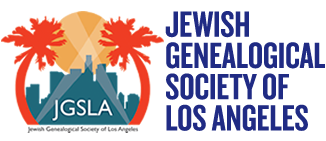The Oral Interview
Oral Interview Questions used for this Project
If you want to prepare an interview for Roots-Key on this special project, these are some of the themes we are focusing on. We are interested in where people came from before Los Angeles. And when they were in their original home countries, what their occupations and interests were. That is, just what did they bring with them to L.A. Once here, how did they adjust. What was the first generation doing and what were their goals for themselves and their children.
As, we are trying to re-create a place, we are also interested in neighbors, neighborhoods, activities, affiliations and their extended families and support groups. What did they contribute to their neighbors and neighborhoods. We also want to know where they went to school, played, married and were buried. All the details that make up a life shared by others.
So here are some questions. I’m sure you can think of others.
Your family:
When did your family first come to L.A.
Where did they live before that
What did they do there.
Your life:
Where were you born?
What do you remember most about your first neighborhood?
Do you know the address?
Was that the only neighborhood you lived in?
What school did you go to?
What did your parents do?
What associations did they belong to?
Were they religious?
We are interested in Yiddishkeyt, Zionism, Associations and Clubs, Religious life. How Jewish consciousness might have differed before and after the war.
And anti-Semitism before and after the war.
If you went back to your old neighborhood what would you miss the most?
What did the teenagers do for fun?
What were the songs you associate with life back then?
What was different about growing up in L.A.
Well, as I am not from LA, this is the best I can do. I am sure you can write better questions. But I want to learn about growing up in LA (as opposed to my own experience of growing up in NY where we had subways and winters and Radio City Music Hall to listen to the Big Bands).
Good Luck and looking forward to your contributions.
Write your interview up in Questions and Answers. So that the reader can see the interview as a chat conversation.
Nancy Holden
Editor Roots-Key
